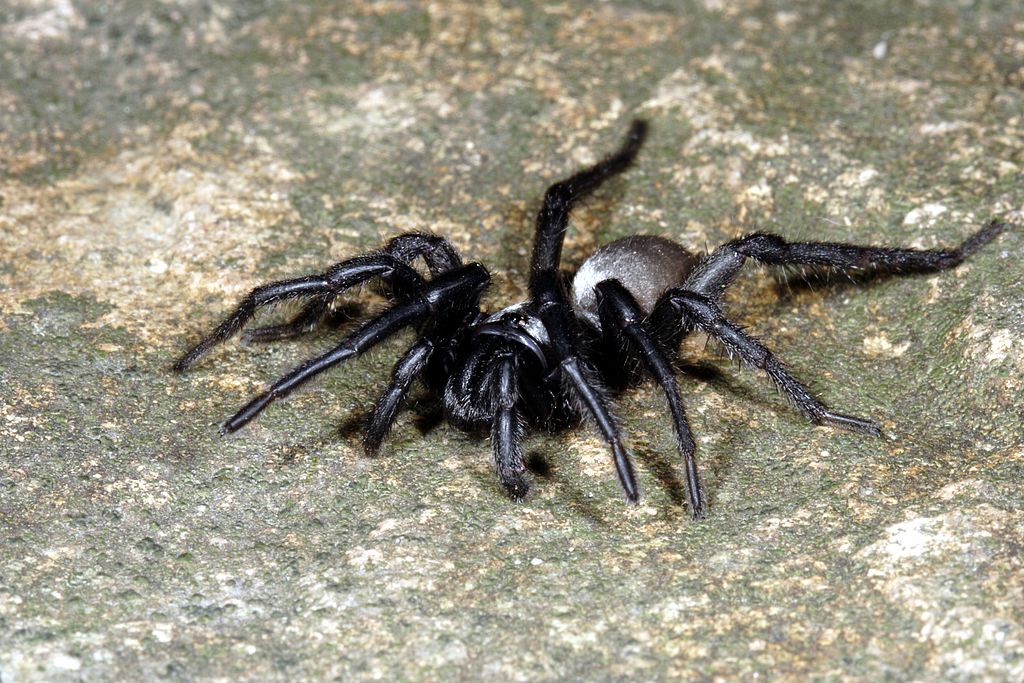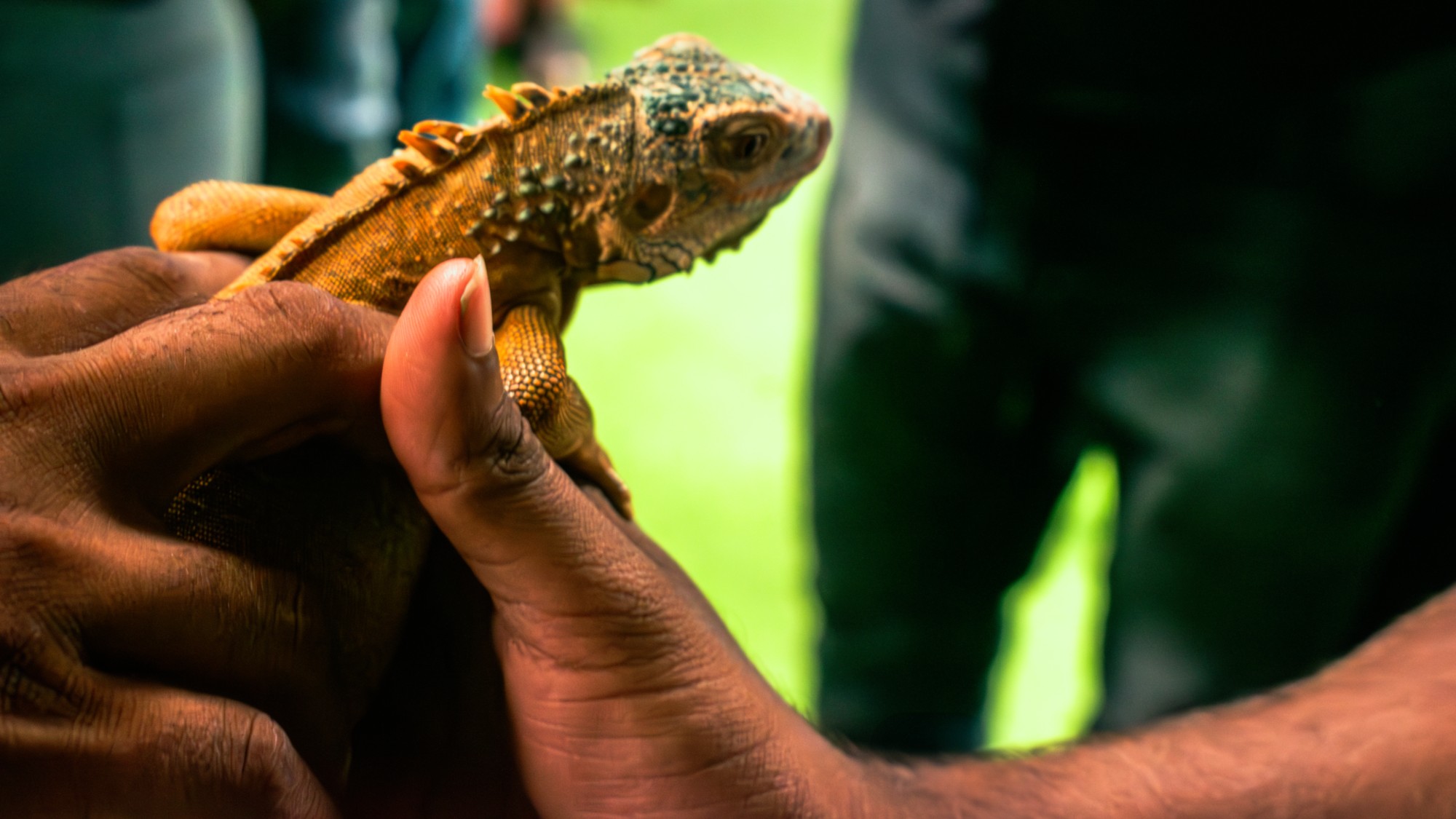Parasitic fungus that kills spiders discovered in Brazil


A free daily email with the biggest news stories of the day – and the best features from TheWeek.com
You are now subscribed
Your newsletter sign-up was successful
Like something straight out of The Last of Us, scientists have found a parasitic fungus in Brazil that attacks trapdoor spiders, The Guardian reports. It is not clear yet whether the fungus takes control of the spider before killing it like the zombie ant fungus that the TV show is based on.
"It's a really beautiful thing," said João Araújo, a Brazilian mycologist with the New York Botanical Garden, who discovered the fungus. "They infect trapdoor spiders, and it's one of the very few cordyceps that are purple, which is a cool feature." He adds that the new species "belongs to a mega-diverse group of fungi," of which "we know about one percent of its diversity, so we know very little."
The fungus was found in the Atlantic Rainforest, the lesser-known but just as diverse rainforest. The forest has lost over 80 percent of its tree cover due to deforestation. Restoring the forest "would combat climate change, safeguard exceptional biodiversity, and boost Brazil's rural economy," scientists believe. "This type of mushroom has been collected very few times in the world, mainly in Thailand. This will likely be the first time we sequence a species like this from Brazil," Araújo commented.
The Week
Escape your echo chamber. Get the facts behind the news, plus analysis from multiple perspectives.

Sign up for The Week's Free Newsletters
From our morning news briefing to a weekly Good News Newsletter, get the best of The Week delivered directly to your inbox.
From our morning news briefing to a weekly Good News Newsletter, get the best of The Week delivered directly to your inbox.
Understanding the species more deeply could lead researchers to "investigate new medical compounds or use them to protect against pests in crops." Some of the initial research conducted included on-site DNA sequencing. Dr. Natalia Przelomska, who worked on-site, remarked that "what was really special about the field trip was that we could go and use some of the newest DNA sequencing technologies with the people working there."
A free daily email with the biggest news stories of the day – and the best features from TheWeek.com
Devika Rao has worked as a staff writer at The Week since 2022, covering science, the environment, climate and business. She previously worked as a policy associate for a nonprofit organization advocating for environmental action from a business perspective.
-
 Tourangelle-style pork with prunes recipe
Tourangelle-style pork with prunes recipeThe Week Recommends This traditional, rustic dish is a French classic
-
 The Epstein files: glimpses of a deeply disturbing world
The Epstein files: glimpses of a deeply disturbing worldIn the Spotlight Trove of released documents paint a picture of depravity and privilege in which men hold the cards, and women are powerless or peripheral
-
 Jeff Bezos: cutting the legs off The Washington Post
Jeff Bezos: cutting the legs off The Washington PostIn the Spotlight A stalwart of American journalism is a shadow of itself after swingeing cuts by its billionaire owner
-
 Russia’s ‘cyborg’ spy pigeons
Russia’s ‘cyborg’ spy pigeonsUnder the Radar Moscow neurotech company with Kremlin-linked funding claims to implant neural chips in birds’ brains to control their flight, and create ‘bio-drones’
-
 How roadkill is a surprising boon to scientific research
How roadkill is a surprising boon to scientific researchUnder the radar We can learn from animals without trapping and capturing them
-
 The ocean is getting more acidic — and harming sharks’ teeth
The ocean is getting more acidic — and harming sharks’ teethUnder the Radar ‘There is a corrosion effect on sharks’ teeth,’ the study’s author said
-
 Cows can use tools, scientists report
Cows can use tools, scientists reportSpeed Read The discovery builds on Jane Goodall’s research from the 1960s
-
 Blue Origin launches Mars probes in NASA debut
Blue Origin launches Mars probes in NASA debutSpeed Read The New Glenn rocket is carrying small twin spacecraft toward Mars as part of NASA’s Escapade mission
-
 Dinosaurs were thriving before asteroid, study finds
Dinosaurs were thriving before asteroid, study findsSpeed Read The dinosaurs would not have gone extinct if not for the asteroid
-
 Parthenogenesis: the miracle of 'virgin births' in the animal kingdom
Parthenogenesis: the miracle of 'virgin births' in the animal kingdomThe Explainer Asexual reproduction, in which females reproduce without males by cloning themselves, has been documented in multiple species
-
 Canyons under the Antarctic have deep impacts
Canyons under the Antarctic have deep impactsUnder the radar Submarine canyons could be affecting the climate more than previously thought
